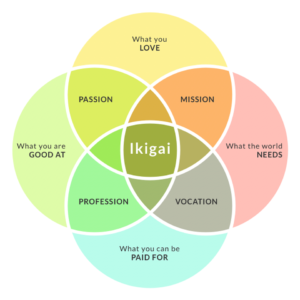by Dino Ljubijankic
 Wanna watch a horror movie, English majors?
Wanna watch a horror movie, English majors?
- 80% of jobs are found through networking.
- Upwards of 70% of jobs are not advertised.
- The odds of landing a job by sending in a resume are 1 in 152. The odds of landing a job through a referral are 1 in 16.
As it turns out, it’s not enough to just graduate and look for jobs.
Spooky, huh? I was introduced to these worrying bits of information through the syllabus of my ENG 400 Special Topics in English class: “Careers for English Majors.” That’s right, the syllabus! Imagine the things we learn in the classroom!
Jokes aside, it’s completely natural to feel anxiety about your post-graduation life and career. You want to put yourself in the best situation to find a stable career, but writing to persuade a potential employer to hire you is very different from writing a story or a paper. Plus, you’re preparing to leave a community of helpful professors and peers for an unknown professional world that seems like an overwhelming abyss.
You see those odds for landing a job through a referral (1-in-16) and want to be in that situation. But the steps to get to that comfy statistic might be unclear at first.
This all seems like a lot.
Students stress about not feeling prepared enough to begin this new education. So, feel scared. It’s an honest, initial reaction. But, let’s try not to dwell on it. Those statistics aren’t there to scare you. They’re just what an English major must do if they want to make a career out of their passion.
ENG 400 might seem like a class that tells students how to get a job.
Wrong.
It’s a place for students to determine what they want from their career. On the first day, our professor Cathy Day (well-renowned author and snack distributor) didn’t talk about jobs at all. She asked who we were and what we wanted to do in life. She made it clear that finding a career out of a passion is both a question of our professionalism and our identities.
Okay, you know that you need to push outward and network to get attention from potential employers. Of course, you need to know how to do this professionally. Yes, it’s important to have a resume and a cover letter and a college transcript and nice clothes, but it’s just as important to know what you want.
As the modern philosopher Jim Halpert remarked, “It’s better to be at the bottom of a ladder you want to climb then halfway up one you don’t.”

Ikigai is a Japanese expression used to illustrate a person’s desires and strengths alongside a greater community’s economic and social needs. Everyone should strive to reach as close to the center as possible – encompassing a balance of all four categories.
What does your identity have to do with your professional life?
Here are some of the questions I’ve been asking myself.
- Where does my intention for a career come from? Am I pursuing this career because I love what I do, or because I’m good at it? Knowing your intentions is a great way to have a clear goal outside of “I want a job,” because you know the source of inspiration for your work will come from a personal place.
- How can I ensure that my personal and professional needs intersect? For example, maybe you feel stifled working in the same space all the time, but your job requires you to work from home. Or maybe you believe in biking or taking public transportation to work, but the job is in a location that makes those options difficult. These concerns may seem small, but they can affect your morale – and isn’t that what we all want, to feel good about the work we do? Ideally, you don’t want your lifeview and workview to be at odds. But, if they are, you need to be prepared to re-consider your priorities.
- How much of myself do I want to share? There’s a lot of our identities that we want to hide, but it’d be unrealistic to keep everything locked away. Be aware that, just like with clothes and appearance, there is an identity you’ll have to craft for the workspace.
- How much could be inferred about me online versus through conversation? Maybe your profession relies heavily on communicating through blogs or social media. A potential employer may very well be in the audience that can view your online identity.
What do we make of this?
I’m upset that I didn’t consider these questions for myself prior to senior year.
If you want to learn more about ENG 400’s career advice:
- This blog will provide posts every other week (just like this one) that will provide personal insights and lessons from students in the course.
- You can come to our class when we have guest speakers!
- Additionally, you can keep up with us by following the hashtag #bsuenglishworks and by picking up a copy of the class textbook, You Majored in What? by Katharine Brooks.
Find a notepad/screen to write on and consider a few answers to the above questions. Regarding the desire to find good work, this fact remains clear above all: the earlier you start, the better.
Dino Lljubijankic is a senior from Mt. Prospect, IL, double majoring in Creative Writing and Rhetoric and Writing. He’s a member of Jacket Copy Creative. You can connect with him on LinkedIn and Twitter.

Comments: